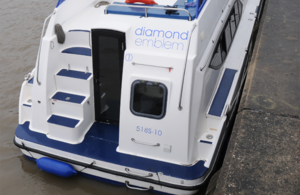- A special one-off addition to the annual Queen’s Award for Voluntary Service created in honour of Her Majesty The Queen’s Platinum Jubilee
The Government has today announced a special one-off addition to the annual Queen’s Award for Voluntary Service (QAVS), in honour of Her Majesty the Queen’s Platinum Jubilee.
Her Majesty has displayed a life-long commitment to public service throughout her 70-year reign, and the annual QAVS is the highest award given to small volunteer groups across the UK. Awardees cover a wide range of activities such as dementia support clubs, community theatres and therapeutic garden projects.
The Queen’s Platinum Jubilee Award for Volunteering will now shine a spotlight on 20 national charities working to empower young people aged 16-25. The number 20 has been chosen to reflect 20 years of QAVS.
A special judging panel has been convened for the award, comprising civil society sector experts and youth representatives including Baroness Tanni Grey-Thompson, Fionnuala Jay O’Boyle and Ndidi Okezie.
Culture Secretary Nadine Dorries said:
Since The Queen’s Award for Voluntary Service was set up 20 years ago to commemorate the Golden Jubilee, thousands of hard working local volunteer groups across the UK have been recognised for benefiting their communities.
We’re delighted to be extending our recognition this year to some outstanding national charities through this special Queen’s Platinum Jubilee Award for Volunteering.
We want to celebrate the important work done by national charities to empower young people with the skills they need to develop and grow. This is a fitting way to recognise the 70 years of selfless service Her Majesty has given to this country.
Sir Martyn Lewis CBE, the QAVS Chair said:
Her Majesty’s faithful service to the nation over 70 years has been an inspiration to us all and is mirrored by countless acts of volunteering happening each day across the UK.
For this special Jubilee Award we are looking forward to celebrating outstanding work with young people, helping them to flourish and be the best they can be. It’s a theme that’s important to all of us and is close to Her Majesty’s heart.
The Platinum Jubilee Queen’s Award for Voluntary Service is now open for applications until 17 June. Nationally registered charities helping young people (aged 16-25), who have had a national impact either on a UK-wide, or England, Scotland, Wales or Northern Ireland basis are invited to apply.
A judging panel including sector experts and young people will select 20 winners to be announced in The Gazette in October. Winners will be presented with this special award at a ceremony in November.
Recent QAVS winners include:
Small Acts of Kindness who provide practical gift bags to lonely and socially isolated older people in Hertfordshire and signpost them to support services.
Equation in Nottingham who deliver projects in schools and the community to help prevent domestic abuse and encourage healthy relationships.
Gurnos Men’s Project in Glamorgan who get disengaged young men involved in community volunteering and horticulture, as well as helping them improve core skills.
Second Wave Centre for Youth Arts in London who run creative projects with young people and work with them to explore key issues such as knife crime and grooming.
Friends of M.V. Freedom in Dorset who take disabled people out to sea on a specially adapted boat.
Via Wings in County Down who provide a wide range of support to those in need, including a food bank, teenage supper club, homework support, learning, and counselling.
Westhill & District Men’s Shed in Aberdeenshire where socially isolated men can share skills, make friends and work together on repairing/refurbishing projects for the community.
Notes:
Nominations for the 2023 QAVS awards are now open until 15 September 2022.
More information and an application form
More information on the main QAVS award
The awardees for the Queen’s Award for Voluntary Service 2022 will be announced on 2 June.
